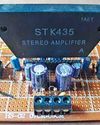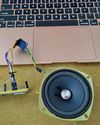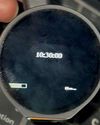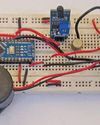
In my article titled 'Developing Lovable Products to Beat Competition' published in January issue I discussed lovable products. A product needs to have certain qualities for being loved. But quality is a very elusive concept. We all understand quality as something that makes the object desirable.
Beyond this universally accepted concept, quality means different things to different people. Some customers may give more priority to the looks, some may prefer more reliability, some others may look for a lightweight product, whereas another group may want one that costs less. To cater to these different needs the product has to address multiple things to be successful in the market.
Sometimes, we may need different product models to address these needs. In this article, we shall focus on the process of systematically addressing these varied requirements from a product.
There are various approaches for systematic product requirement analysis. We shall discuss a rather simple and popular technique called quality function deployment, or QFD. This is a process of listing the requirements simply and concisely, comparing various benchmark products, and systematically evolving the product definition and its manufacturing process.
For QFD we start with listing the product requirements. These requirements for a product come from various stakeholders. Part of it is from the people who will buy the product, then we have those who will use the product. Apart from these two groups we also need to address the requirements of those who sell, stock, and transport the product, the need of society at large, and the rules of the land.
If we fail to address all these varied needs, we shall end up with a bad quality product. So, our journey for product development has to start with discovering and documenting all these requirements.
This story is from the {{IssueName}} edition of {{MagazineName}}.
Start your 7-day Magzter GOLD free trial to access thousands of curated premium stories, and 9,000+ magazines and newspapers.
Already a subscriber ? Sign In
This story is from the {{IssueName}} edition of {{MagazineName}}.
Start your 7-day Magzter GOLD free trial to access thousands of curated premium stories, and 9,000+ magazines and newspapers.
Already a subscriber? Sign In

STK435 IC-Based STEREO AMPLIFIER
This stereo AF amplifier uses the STK435 IC, a highly popular choice due to its simplicity.

A SEWER DRAIN SHIELD For Smart Cities
Drainage systems are vital for storm water management but often transport pollutants, especially plastics, to rivers and oceans, harming ecosystems.

ESP32 SPEECH FUNCTION: Text To Speech
Speech capability in technology primarily has two dimensions: text to speech (TTS) and speech to text (STT). This device focuses on TTS.

World's Smallest Programable INDUSPHONE DESIGN
This is the second part of designing the world’s smallest phone, where the UI is integrated with the basic functions of the phone.

FLAME-SENSING FIRE ALARM Using An Arduino Nano
Fire safety alarms are crucial in both residential and industrial environments.

loT-Based Distribution Transformer CONDITION MONITORING SYSTEM
The proposed IoT-based distribution transformer condition monitoring system enables real-time monitoring of distribution transformers, identifying such deviations as overload conditions and overheating.

Wi-Fi 6 AND Wi-Fi 7 Powering The Next Wave of Smart Connectivity
Wi-Fi 6 leads with faster data rates and reduced latency while upcoming Wi-Fi 7's backward compatibility will facilitate gradual upgrades from Wi-Fi 6, easing transitions. However, advanced features like multi-link operation (MLO) and ultra-low latency may command a premium, making Wi-Fi 7 suited for high-end applications.

CHARGE FORWARD: High-Voltage Batteries And MSMEs Can Fuel INDIA'S EV REVOLUTION
A nuanced explanation of low- and high-voltage EV batteries by Dr Gokhale, Vice President for Battery Technology at JSW Energy, illuminates their advancements and influence. The essential role of MSMEs and academia in developing a strong EV ecosystem emerges, marking their significance for India's push towards self-reliance in this innovative field.

"MILES TO GO Before I Sleep"
A teacher illuminates the path to success through the light of knowledge, yet some teachers extend that light to society through their contributions and research. Known as the architect of the modern M3 electronic voting machine (EVM) and the voter verifiable paper audit trail (VVPAT) that transformed India's democratic process, Prof. (Dr) Rajat Moona's journey began in the modest town of Bareilly. Here is his story, as recounted to and written by EFY's Yashasvini Razdan.

STARTUPS & INNOVATORS
1 One Charger To Charge All Your Devices | 2 Harnessing AI Technology For Efficient Pest Management | 3 Wireless Light-Based Communication With Velmenni's Technology